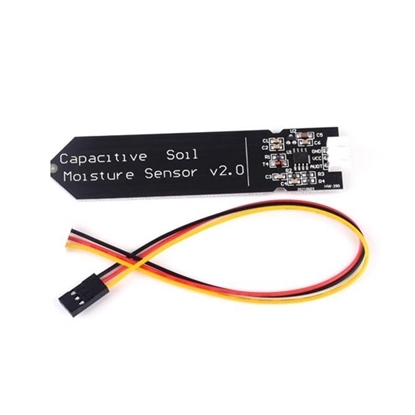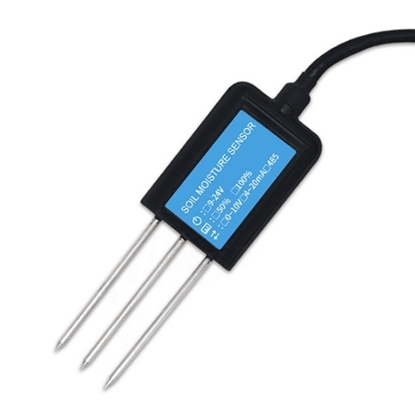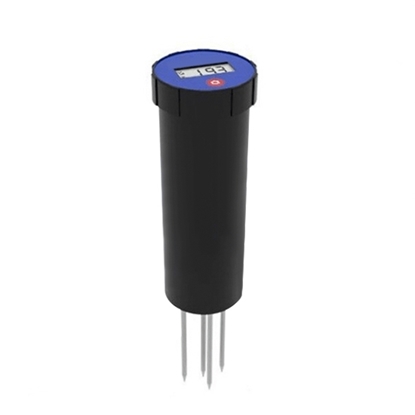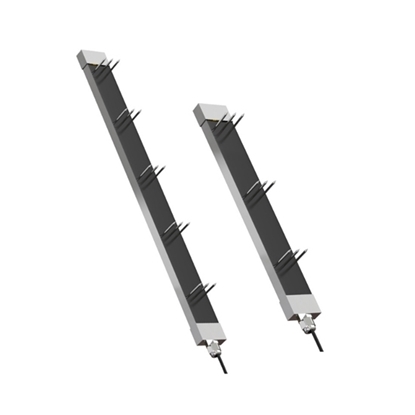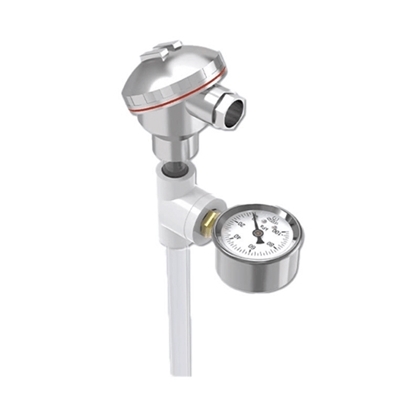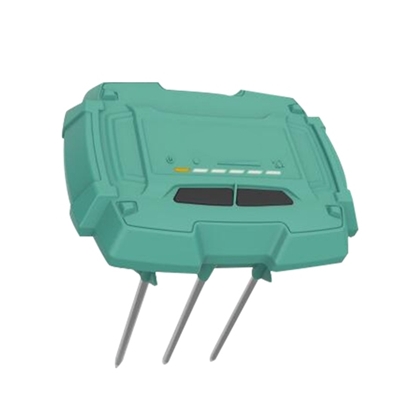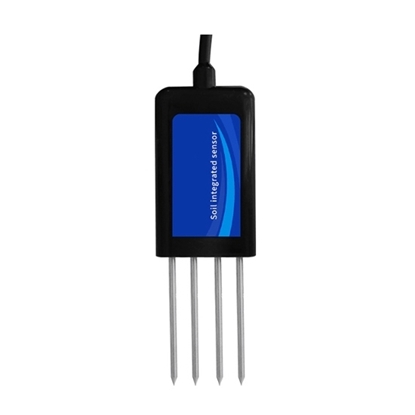Soil Moisture Sensor
Capacitive Soil Moisture Sensor, 3.3-3.5VDC
Analog Soil Moisture Sensor, 0-100% RH
Speedy Soil Moisture Sensor, EC/Temp
Multi Depth Soil Moisture Sensor, 5~45cm, EC/Temp
Tensiometer Soil Moisture Sensor for Irrigation
Garden Soil Moisture Sensor, Wifi/Bluetooth
Soil Moisture and Temperature Sensor, EC/pH/Salts/N-P-K
Soil moisture sensors are essential tools for measuring the water content within soil. They play a crucial role in managing irrigation and plant health by providing data that informs watering schedules. Soil moisture sensors are essential in fields like agriculture, horticulture, environmental monitoring, and smart gardening. By accurately measuring soil moisture levels, these sensors help prevent overwatering or underwatering, optimize water use, and support plant growth by ensuring plants receive the necessary amount of moisture for healthy development.
Working Principle
Soil moisture sensors work based on the relationship between soil moisture and electrical properties, primarily conductivity and capacitance. Two main types of soil humidity sensors are widely used: capacitive sensors and resistive sensors.
- Capacitive Sensors: Capacitive soil moisture sensors measure the soil's dielectric permittivity, which varies with water content. As the soil's moisture increases, the dielectric constant (or permittivity) rises, and the sensor uses this change to calculate moisture levels. Capacitive sensors are generally more durable and less prone to corrosion than resistive sensors, making them suitable for long-term applications in various environments.
- Resistive Sensors: Resistive soil moisture sensors measure the resistance between two electrodes placed in the soil. As moisture increases, soil resistance decreases, and this data is used to determine the moisture level. While resistive sensors are typically more affordable, they may be prone to corrosion over time, especially in soils with high mineral content, which can affect long-term accuracy.
Advanced soil moisture sensors combine multiple measurements, including temperature, pH, and electrical conductivity (EC), providing a comprehensive view of soil health. Some also incorporate wireless connectivity, allowing for remote data monitoring and control.
Differences Between Sensor Types
Different types of soil moisture sensors are available, each designed to suit specific needs and applications. Here's a look at some key distinctions:
- Measurement Parameters: Basic soil humidity sensors measure only moisture, while advanced models measure additional parameters such as temperature, pH, EC (Electrical Conductivity), and N-P-K nutrients (Nitrogen, Phosphorus, and Potassium). For example, a basic capacitive sensor may only provide moisture data, whereas a more sophisticated sensor can give insights into soil fertility and chemical balance, offering a more comprehensive analysis.
- Measurement Technology: Capacitive sensors are known for their durability and accuracy in measuring soil moisture by detecting changes in dielectric permittivity. Resistive sensors, while often less expensive, are more susceptible to wear and tear due to corrosion and may have a shorter lifespan in moist or saline soils.
- Depth of Measurement: Some sensors measure moisture at a single point, which is effective for shallow-rooted plants or surface soil analysis. Others, such as multi-depth sensors, can monitor moisture at multiple levels within the soil profile, providing data on deeper layers. This is particularly useful for crops with deep root systems or for understanding moisture distribution in different soil layers.
- Connectivity Options: Traditional sensors are standalone, providing readings directly on the device or through wired connections. Modern soil moisture sensors may offer wireless connectivity via WiFi, Bluetooth, or cellular networks, enabling remote monitoring. This feature is valuable for users who want real-time data access from multiple sensors across large areas, such as farms or research plots, without physically accessing each sensor.
- Data Output and Integration: Some sensors provide analog output that can be easily integrated into simple irrigation systems, while others offer digital output (like RS485 or MODBUS protocols), making them compatible with sophisticated data logging systems and farm management software. Wireless-enabled sensors can often be controlled via smartphone apps, allowing users to monitor conditions and control irrigation remotely.
Applications
Soil moisture sensors are versatile tools used across a wide range of applications. Here are some key uses:
- Gardening: In home gardens, soil moisture sensors help maintain optimal moisture levels, which is particularly useful for plants with specific watering needs. These sensors allow gardeners to water only when necessary, conserving water and promoting healthy plant growth.
- Agriculture: In large-scale farming, soil moisture sensors are crucial for precision agriculture. By monitoring moisture levels, farmers can implement efficient irrigation schedules, reduce water waste, and optimize crop yields. These sensors also enable targeted irrigation, where specific areas of a field receive water based on real-time moisture readings, resulting in more effective and sustainable water usage.
- Horticulture: For horticultural applications, especially in greenhouses or nurseries, soil moisture sensors help maintain the precise environment needed for different plant species. By continuously monitoring soil moisture, horticulturists can adjust irrigation systems to ensure that each plant receives the correct amount of water, preventing root diseases caused by overwatering or stress from underwatering.
- Irrigation Systems: In automated irrigation systems, soil moisture sensors serve as the primary data source, allowing for intelligent water management. By integrating moisture sensors, these systems can automatically adjust watering schedules based on real-time data, saving water and reducing operational costs.
- Environmental Research: Soil moisture sensors are also used in environmental research, where scientists monitor moisture levels in soil to study ecosystem health, climate change effects, and soil degradation. These sensors provide valuable data for understanding how soil moisture impacts plant ecosystems and the broader environment.
- Smart Gardens and Home Automation: For smart gardens, soil humidity sensors with WiFi or Bluetooth connectivity allow users to remotely monitor soil conditions. These sensors can integrate with home automation systems, providing real-time updates on moisture levels and enabling automated irrigation control via smartphones or other smart devices.

